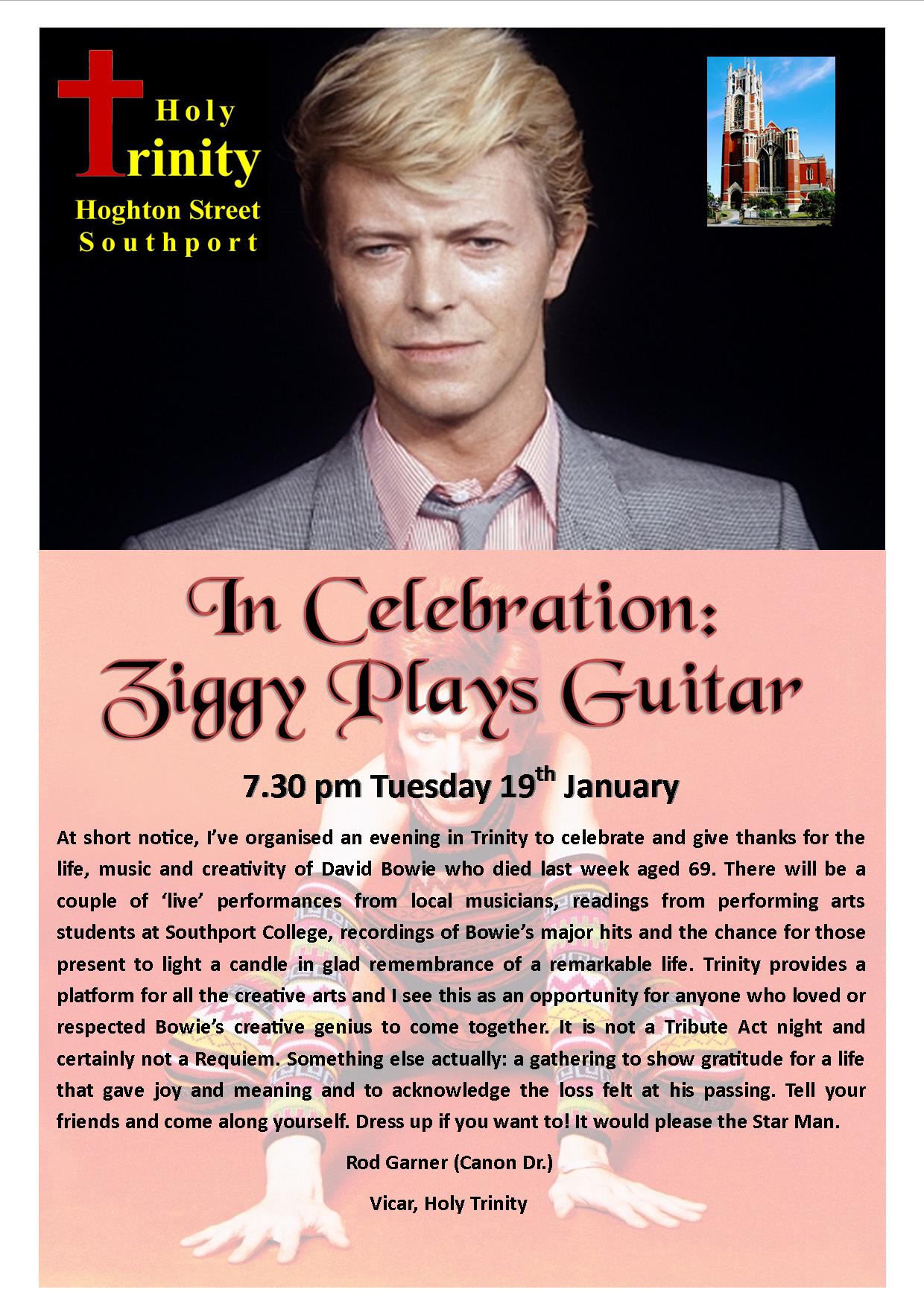PostScript: David Bowie (1947-2016)
A reflection on a great cultural icon.
Introduction
The passing of a cultural great clearly calls forth an emotional response. With David Bowie’s death this week has come a plethora of tribute and comment, mostly appreciative, and from all quarters. I have done my own unscientific trawl of the press and online media and found much to stir the imagination and to think about. Although an erstwhile musician myself, I will leave the musical appreciation to others better qualified – so where shall I begin?
The Archbishop of Canterbury is quoted by the BBC as saying 'I remember sitting listening to his songs endlessly in the 1970s particularly and always really relishing what he was, what he did, the impact he had… Extraordinary person.' Commenting on this in a post on Christian Radio blog, someone bemoaned the fact that the Archbishop had not used the opportunity to say that although many had followed Bowie avidly, there was only one way and one true Messiah.
Lest this be thought to be a purely British, or even Anglican affair, the Vatican’s culture minister tweeted lyrics from ‘Major Tom’ in funeral-like words of commendation: ‘Ground Control to Major Tom. Commencing countdown, engines on. Check ignition, and may God's love be with you.’ On the receiving end, I couldn’t help but chuckle at pictures of the service update boards at a number of London underground stations, which quoted Bowie’s well known words: ‘I don't know where I am going from here, but I promise it won't be boring.’
Elsewhere one can find everything from adulation that exalts Bowie to the status of a demi-God to outright condemnation for his lifestyle and (assumed) values. There is also a fair amount of speculation (one can hardly call most of it informed analysis) as to whether, and to what extent, Bowie was religious, accompanied by claims that he was an atheist, or a Christian, or something else.
For example, in his blog, David Zahl cites Bowie’s ‘Loving the Alien’ (1988) as an illustration of Martin Luther’s concept of ‘alien righteousness’ – that is, righteousness that comes from outside, as does that of Christ (according to Luther). Several people point to Bowie’s impromptu recitation of the Lord’s Prayer at the end of the 1992 Freddie Mercury tribute concert as an indication of a Godly spirituality, if not a hidden Christianity.
It certainly seems that Bowie was well aware of his approaching death well before it came upon him, and that might give some credence to suggestions – drawn among other things from the words of his final song, Lazarus, which begins ‘Look up here, I’m in heaven’ – that he had given much thought to this aspect of his life, even if he hadn’t shared it with the general public. For a considered reflection on Bowie and the song Lazarus, I commend the blog of Steven Croft, Bishop of Sheffield.
...and response
Of course, at the end of all this, what difference does it make to our lives as Christian disciples? How can we make connections with our daily living? How does it help us in our witness to, our relationships with, those among who we live and work and play for whom God is not an ever-present reality?
Perhaps, as Steven Croft suggests, some will think about their own mortality, and may even be nudged in the direction of the biblical story of Lazarus and begin to ponder its meaning. Perhaps, some will be inspired or challenged (or both) by the life and music of David Bowie to question aspects of their own lives or beliefs to which they had previously given little thought.

A church near me, Holy Trinity Church in Southport, is holding a special evening ‘in celebration’ next week. Live performances, readings, and (for those who wish) an act of remembrance by lighting a candle. ‘Not a tribute act, and certainly not a requiem’, says the vicar, rather an opportunity, in a place which is able to provide a platform for creative arts, for people to come together to show gratitude and to express their feelings. I, for one, wish the churches would grasp such opportunities a lot more often. Theology asks: where is God in all this? Whatever the reason or motive, when people are clearly moved and seeking ways to express themselves, one might equally ask in that context: where is the Church in all this? God’s generous and unconditional love is surely best shown by example.
Martin Adams is Editor of ROOTS Adult & All Age resources.
Hypertext links to other websites are for the convenience of users only and do not constitute any endorsement or authorisation by ROOTS for Churches Ltd.